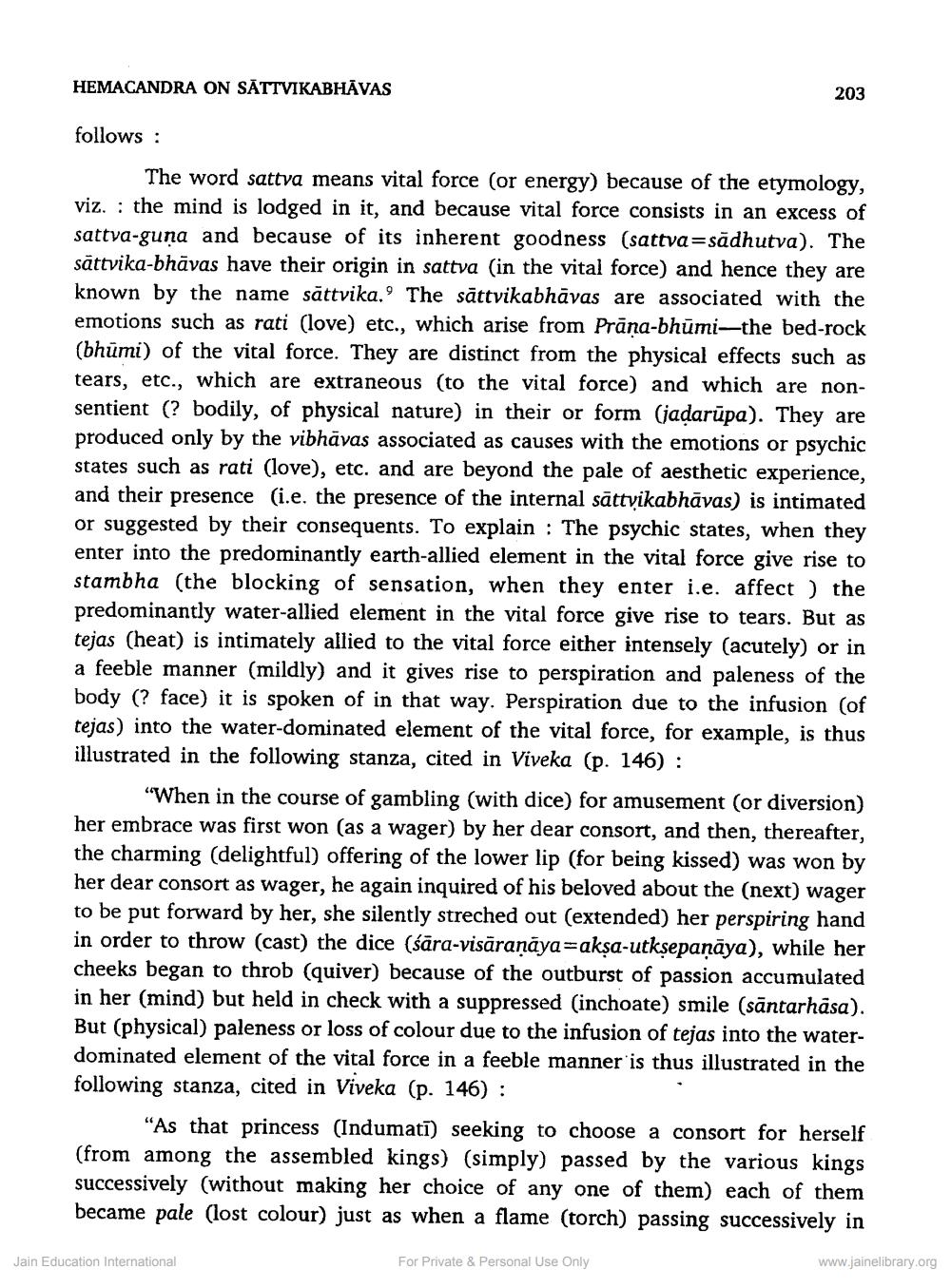________________ HEMACANDRA ON SATTVIKABHAVAS 203 follows: The word sattva means vital force (or energy) because of the etymology, viz. : the mind is lodged in it, and because vital force consists in an excess of sattva-guna and because of its inherent goodness (sattva=sadhutva). The sattvika-bhavas have their origin in sattva (in the vital force) and hence they are known by the name sattvika.' The sattvikabhavas are associated with the emotions such as rati (love) etc., which arise from Prana-bhumi--the bed-rock (bhumi) of the vital force. They are distinct from the physical effects such as tears, etc., which are extraneous (to the vital force) and which are nonsentient (? bodily, of physical nature) in their or form (jadarupa). They are produced only by the vibhavas associated as causes with the emotions or psychic states such as rati (love), etc. and are beyond the pale of aesthetic experience, and their presence (i.e. the presence of the internal sattyikabhavas) is intimated or suggested by their consequents. To explain : The psychic states, when they enter into the predominantly earth-allied element in the vital force give rise to stambha (the blocking of sensation, when they enter i.e. affect) the predominantly water-allied element in the vital force give rise to tears. But as tejas (heat) is intimately allied to the vital force either intensely (acutely) or in a feeble manner (mildly) and it gives rise to perspiration and paleness of the body (? face) it is spoken of in that way. Perspiration due to the infusion (of tejas) into the water-dominated element of the vital force, for example, is thus illustrated in the following stanza, cited in Viveka (p. 146) : "When in the course of gambling (with dice) for amusement (or diversion) her embrace was first won (as a wager) by her dear consort, and then, thereafter, the charming (delightful) offering of the lower lip (for being kissed) was won by her dear consort as wager, he again inquired of his beloved about the (next) wager to be put forward by her, she silently streched out (extended) her perspiring hand in order to throw (cast) the dice (sara-visaranayaraksa-utksepanaya), while her cheeks began to throb (quiver) because of the outburst of passion accumulated in her (mind) but held in check with a suppressed (inchoate) smile (santarhasa). But (physical) paleness or loss of colour due to the infusion of tejas into the waterdominated element of the vital force in a feeble manner is thus illustrated in the following stanza, cited in Viveka (p. 146) : "As that princess (Indumati) seeking to choose a consort for herself (from among the assembled kings) (simply) passed by the various kings successively (without making her choice of any one of them) each of them became pale (lost colour) just as when a flame (torch) passing successively in For Private & Personal Use Only Jain Education International www.jainelibrary.org




